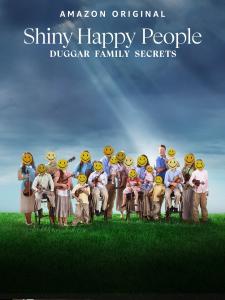Today’s post is from a guest contributor, my colleague Dr. Katherine Cooper Wyma. Dr. Wyma is an Associate Professor of English at Anderson University in South Carolina. She teaches several courses on CS Lewis and JRR Tolkien. Her primary academic interest is in late medieval and early modern lay piety and devotional literature. Currently, she is writing a monograph on theolocal anthropology, the Inklings, and behavior in digital spaces.
As a university professor during the Covid epidemic, there were many things that changed about my classroom. I, like many professionals, was required to wear a mask in the classroom, in the halls, and in my office. These measures made instruction, and life, more difficult. And yet, when masks started to vanish from public spaces, I suddenly realized: I missed them. It wasn’t until recently that I understood why; they had given me the permission to not smile. To be able to relax into whatever facial expression I wanted to wear as I passed someone in the hall or at the grocery store. Oddly enough, wearing a mask allowed me to be more authentic.

This engrained pressure to always be amiable and smiling, even to strangers, might be in part due to growing up female in the rural South, but I believe there is a deeper, more impactful reason than mere geography. As a middle schooler taught through Gothard’s and IBLP’s Wisdom Booklets, I had been taught that I should always have a “cheerful countenance.”
Since the “face reveals your inner attitudes, your needs, your joys, your struggles, and your victories. A cheerful countenance provides a ministry of encouragement for others. Apart from your actual words, your countenance can be the most effective means you have to express the love of the Lord Jesus Christ to others around you. . . . A sad countenance demonstrates a selfish spirit because it forces the sympathies of others to determine what trouble is at the root of the frown. . . . A smile says . . . ‘I am experiencing the joy of the Lord inside.’” (Wisdom Booklet 15, 621).
The number one rule listed in this booklet was to “Wear a Smile.” And if you didn’t, you were selfish and showing that you lacked a love for Jesus. This brought eternal weight to something as simple as facial expressions. And it was only one of the many teachings I learned growing up with the homeschooling curriculum of Bill Gothard.
Gothard’s Institute in Basic Life Principles published a popular homeschooling curriculum in the 1980’s and 90’s, featuring fifty-eight “wisdom booklets” that purported to offer a high-quality, multi-disciplinary education. (Fifty-four of these booklets have been scanned and archived here.) Gothard resigned from leading the IBLP organization in 2014 over allegations of sexual assault and misconduct; however, the IBLP website still directs visitors to many hours of his instruction.

IBLP and Gothard were recently featured in the Amazon Prime docuseries “Shiny Happy People: The Duggar Family Secrets.” Debuting this summer, it drew the most viewers of any Amazon docuseries to date. While the docuseries begins by discussing the rise (and fall) of the Duggar family’s reality tv show on TLC, the supporting actor is Bill Gothard. Jinger Duggar Vuolo recently summarized Gothard’s teaching this way: “in a nutshell [they] are based on fear and superstition.”
In answer to “Shiny, Happy People,” Gothard issued a statement on his social media channels attacking the filmmakers and returning to the very teachings I’ve highlighted above. He stated in part that these attacks allowed him to declare “Now is the Time for Courage and Rejoicing!”
Although Christians are instructed to rejoice in persecution (Matthew 5:10-12, II Corinthians 12:10, etc.), they are also reminded to “Rejoice with those who rejoice; weep with those who weep” (Romans 12:15 CSB). Certainly, there are many examples of sadness, weeping, despair, and even perhaps, depression in words and stories throughout the Bible.
This month, while doing research at the Marion E. Wade Center, I read a passage from a letter by C.S. Lewis which speaks directly to Gothard’s insistence on positivity.
C.S. Lewis was well acquainted with the breadth of human emotions and experiences. Though he is often thought of as the author of the beloved Narnia children’s books, he was also a self-assured Oxford don who braved intellectual debates, a the Christian apologist, and he experienced the tragedy and trauma of war. In Surprised by Joy, he recounts how on his nineteenth birthday he arrived at the front trenches in France to serve during World War I (p. 186-188). Barely a year later he was discharged with physical and mental wounds that would resound throughout the rest of his life.
On May 8, 1939, Lewis wrote to his friend Bede Griffiths, just a few months before the start of World War II. Lewis, along with many of his countrymen, saw trouble on the horizon. Having already experienced the personal and relational turmoil of a World War, he wrote, “I’m not a pacifist. If it’s got to be, it’s got to be. But the flesh is weak and selfish[,] and I think death would be much better than to live through another war” (Collected Letters of C.S. Lewis, Vol. II, p. 257). Certainly, Lewis felt no compunction to present a “cheerful countenance.” Instead, what Lewis admits to his friend could be labeled despair as he contemplates the coming events. This stands in stark contrast with Gothard’s teaching and the resulting behavior exhibited by the Duggars in “Shiny, Happy People” which reduces human emotions to a persistent and insidious positivity. Smiling and a “cheerful countenance” is the way to show devotion to Jesus.
Then, Lewis references the key event in Jesus’ life that shows just how flawed Gothard’s requirement is. He writes,
Thank God, He has not allowed my faith to be greatly tempted by the present horrors. I do not doubt that whatever misery He permits will be for our ultimate good unless, by rebellious will, we convert to evil. But I get no further than Gethsemane: and am daily thankful that that scene of all others in our Lord’s life, did not go unrecorded. But what state of affairs in this world can we view with satisfaction? If we are unhappy, then we are unhappy. If we are happy, then we remember that the crown is not promised without the cross and tremble (CL p. 258).
Lewis takes comfort in two things: Jesus felt dread and concern as he contemplated tragedy and human life contains both happiness and unhappiness. Matthew 26 reveals a Jesus in the Garden of Gethsemane who is anxious, overwhelmed, and needing friendship. His prayer begs for a different way, some way out of the torture and death that was to come. He asks his friends three times for support by both being physically present and with their prayers. What do they do? Fall asleep. Jesus is alone in his sorrow and trouble as he faces a coming terrible event.
C.S. Lewis feared that death would be better than living through the coming war years, so he turned to Jesus’s Garden experience as a model and encouragement. The Gospels record Jesus experiencing a range of human emotions, and not one of them was maintaining a “cheerful countenance.”














